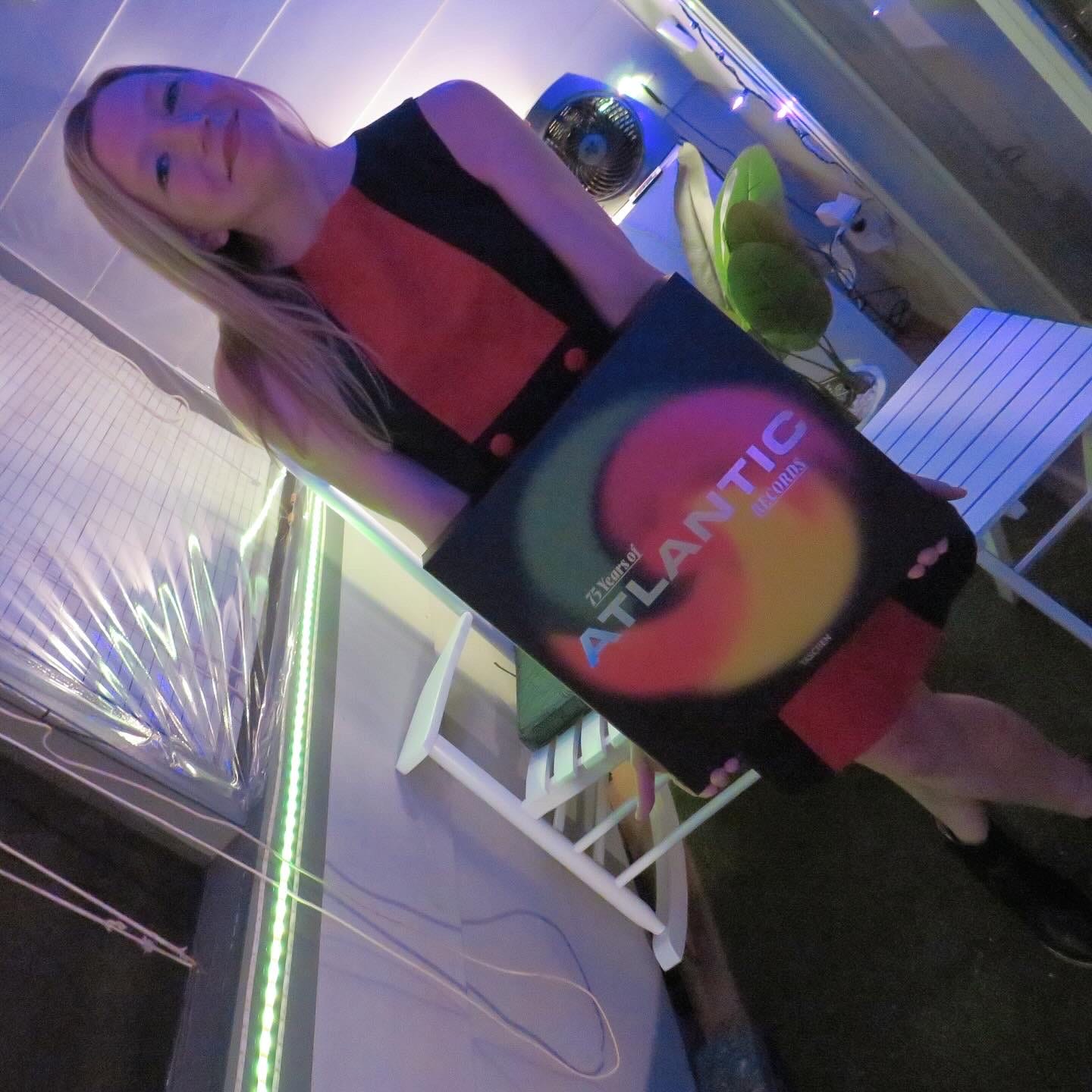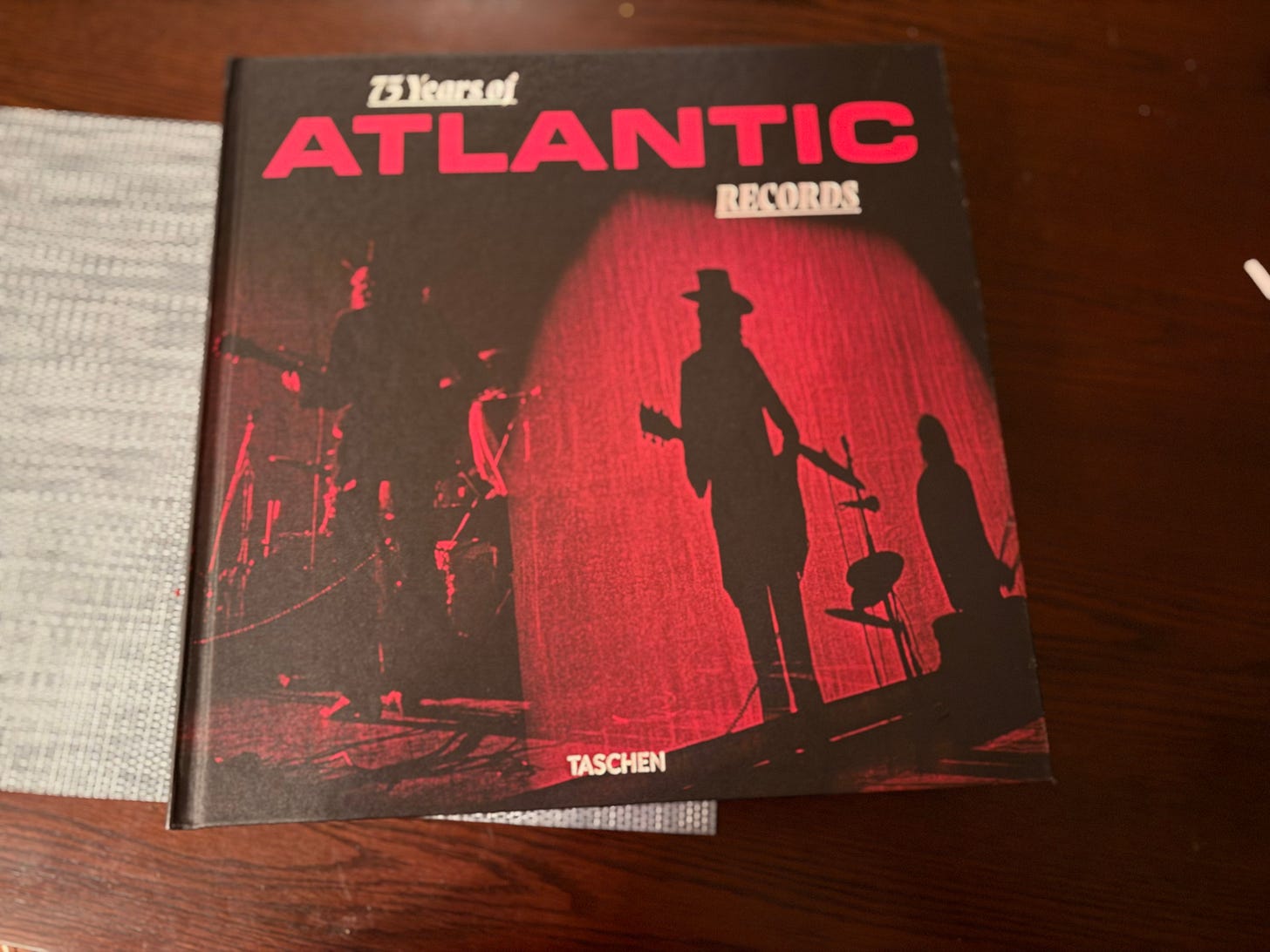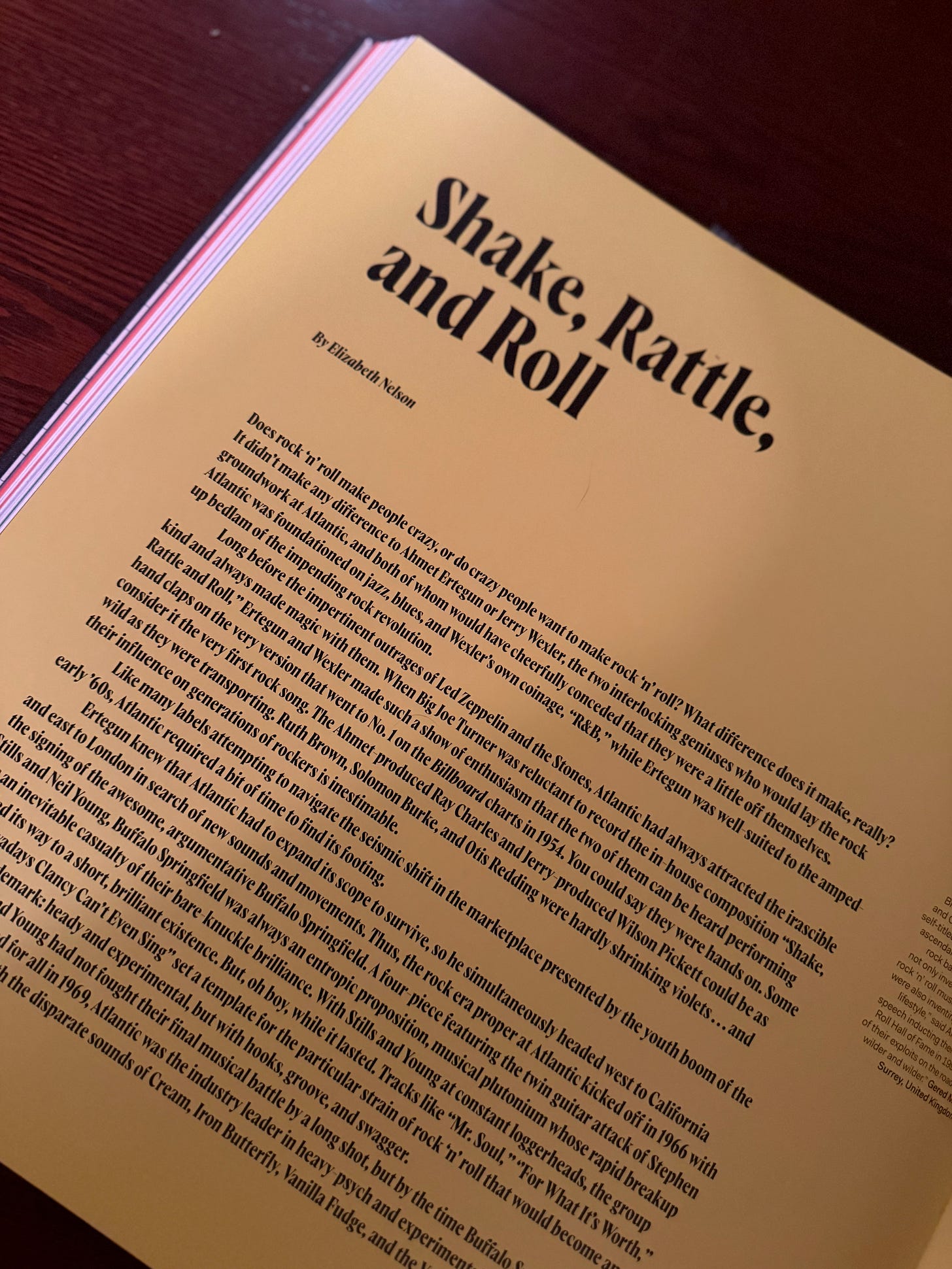You Won't Do Right to Save Your Doggone Soul
Reflections on Atlantic Records and these generally wretched times
Recently I was asked to author the chapter on rock music in an anthology from Taschen celebrating the 75th anniversary of Atlantic Records. It was a fun challenge to get to write about and contextualize acts like Led Zeppelin, Buffalo Springfield, the Rolling Stones and others who have been part of Atlantic's astonishing catalog. (Other writers like David Ritz and Barney Hoskyns tackled Atlantic's equally sterling legacy in genres like R&B and pop.) In doing my research for the piece, the thing I enjoyed most was learning about the background of the label’s crucial founders Ahmet Ertregun and Jerry Wexler. Of course I knew their names — there is scarcely a musical figure from the 20th century that one or the other or both of them didn't meaningfully impact at some juncture, from Aretha to Zimmerman. But what was truly nourishing was hearing how deeply and passionately driven they were by an early love of blues and jazz that inspired in them a sense of evangelism that simply could not be suppressed.
How much did Ertegun and Wexler love this music? Picture this: in 1949, the two partners decided to go scout the American south for talent. Ertegun, the elegantly mannered son of the Turkish ambassador to the US, and Wexler, a tough Jewish kid from the Bronx, made quite the odd couple to begin with. Below the Mason-Dixon line, they were practically extraterrestrial. In Atlanta, they went searching for the legendary bluesman Blind Willie McTell, who had been recorded in 1940 by Alan Lomax and subsequently disappeared from view. Encountering a man busking outside a building, they asked if by chance he had ever met Blind Willie McTell. The street performer stopped short and replied, “Man I am Blind Willie McTell.” Later on the same trip, they set out looking for Professor Longhair, the New Orleans pianist whose brilliance had made its way through word-of-mouth back to New York City. Ferrying across the Mississippi to the Algiers section of New Orleans, they could only find a white cab driver who would take them what he judged to be a safe distance to the juke joint where Longhair was playing. They walked the extra road through a muddy field by a midnight moon. Unnerved by the unusual intrusion into the packed, all Black club, the doorman at first refused them entrance. When they finally talked their way in, many in the crowd scattered, fearing a police raid. But Ertegun and Wexler were in reverential awe of the music and the scene. This was nothing less than a religious pilgrimage. Both McTell and Longhair later recorded for the fledgling label.

Ertegun and Wexler’s insatiable zeal for the music they loved is inspiring, but also saddening in our contemporary context. As is made clear in abundance throughout Liz Pelly’s excellent, demoralizing recent book about Spotify Mood Machine: The Rise of Spotify and the Cost of the Perfect Playlist, Spotify founder Daniel Ek and the other executives in charge of what is contemporary popular music’s most vital platform could scarcely care less about music if they made a concerted effort. With its infamous algorithm and borderline sadistic withholding of royalties from musicians in an effort to maximize shareholder profits, Spotify is a cautionary tale about what happens when the things that move us body and soul are left to be administered by those whose intentions are purely profit and status driven. The impoverishment isn’t suffered merely by the artists being cheated out of their cut of the streaming pie — it’s borne by all of us whose lives and passions have been soundtracked by the presence of great music, both mainstream and obscure. It’s borne by those whose curiosity might drive them far from the consensus-driven bubble that Spotify cultivates and desperately protects. It is truly one of the saddest developments I have ever seen in my life.
Ertegun and Wexler were not perfect people, and Atlantic is and was not a perfect company. There were mistakes and excesses, creative accounting and contretemps with artists and one another. (Another infamous anecdote involves the time the Atlantic signed soul-singer Wilson Pickett walked into their offices just as Wexler was complaining to Ertegun about Crosby, Stills, Nash & Young’s constant demand for creative autonomy. Pickett slammed a pistol down on a table and announced to Wexler: “If [Atlantic house producer] Tom Dowd walks into where I’m recording, I’m going to shoot him. And if you walk in, I’m going to shoot you too.” Pickett stormed out. Ertegun turned to Wexler: “What were you saying about artistic autonomy?”) But the fact that Ertegun and Wexler were neither saints nor charity cases only underscores the abysmal nature of the music business under the Spotify regime. Ek and his ilk, with their zero sum, profit-for-profit’s-sake approach, will often suggest that their way of running things is the only reasonable or even possible model. It’s a gross distortion of the truth, and an insult to the memories of men like Ertegun and Wexler, who demonstrated consistently over decades, that building a hugely successful and profitable music company was never an either/or proposition in terms of investing their work with abiding passion. One of Atlantic’s first big hits was Big Joe Turner’s 1954 version of “Shake, Rattle and Roll.” Overwhelmed by excitement, you can hear Ertegun and Wexler in the studio, clapping their hands and shouting along to the track's ebullient chorus. The effect, in streaming parlance, is what you’d call a real vibe. One worth preserving.
All around us we are made to feel that the alleged rewards of convenience are a sufficient compensation for a cultural landscape rendered increasingly bereft of individualism by an ever-more-insatiable and implacable corporate-tech duopoly. Ertegun and Wexler got rich in the music business, but they never forgot the feeling of crossing a muddy field in a strange city to hear a once in a lifetime talent. Making money and elevating great art has never been mutually exclusive, and it still isn’t today, or at least it doesn’t need to be. The algorithm may disagree, but some home truths you just know in your heart.






First off: this is the kind of thing... WHY WAS I NOT CONSULTED? And, you know, well done you.